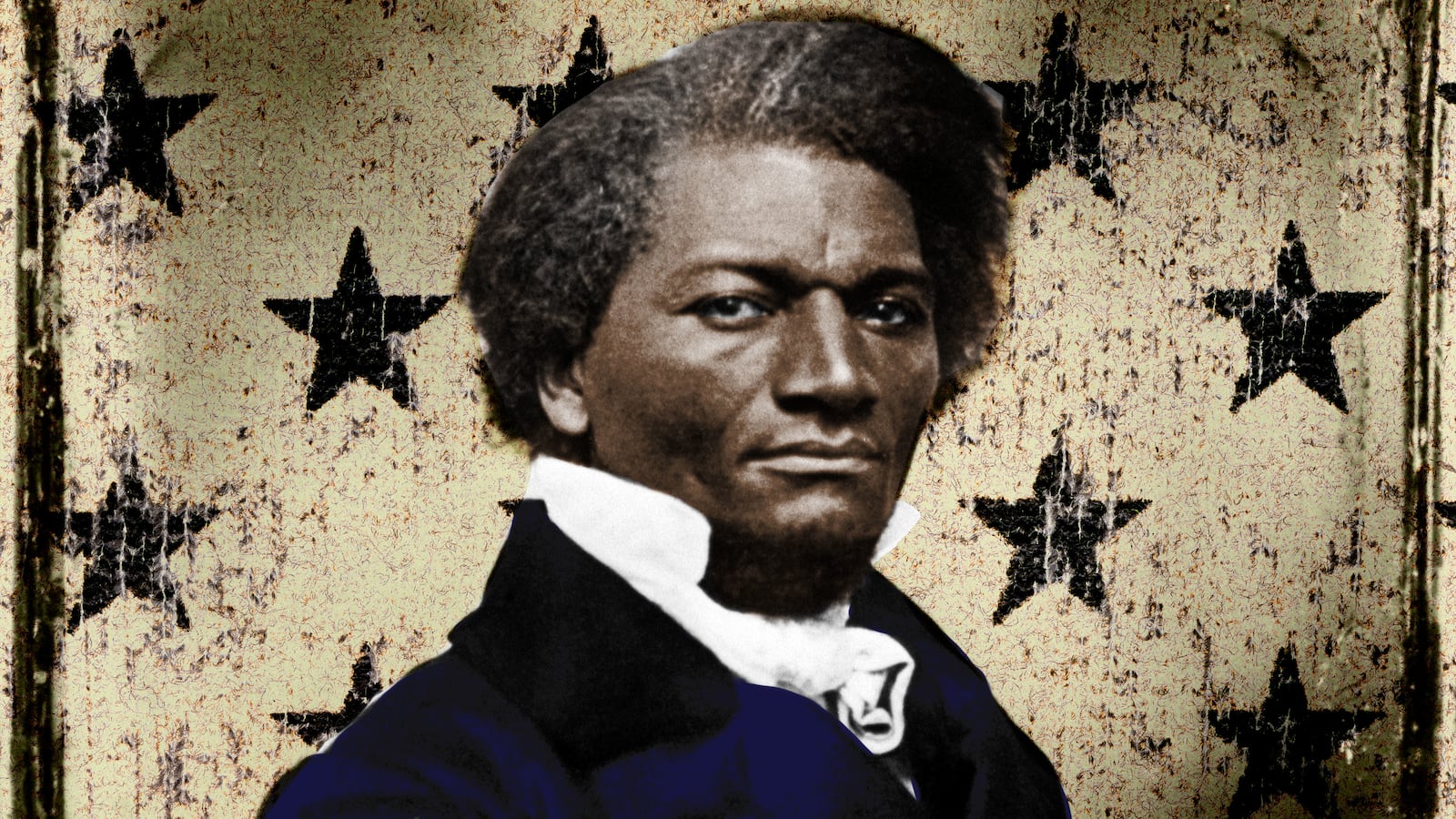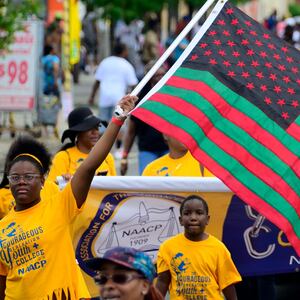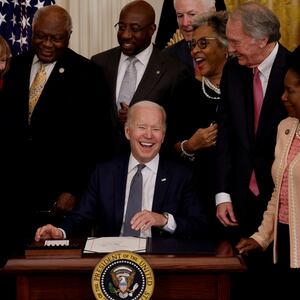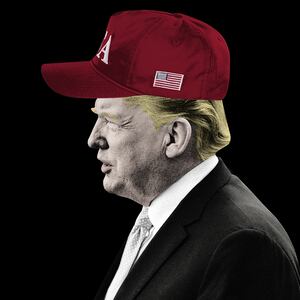When I think of Juneteenth, I can’t help but think about a famous speech by Frederick Douglass—and about the young Mexican American activist who told me a couple of years ago that he wanted to celebrate Juneteenth instead of the Fourth of July.
On July 5, 1852, at an Independence Day celebration organized by the Rochester Ladies’ Anti-Slavery Society, Frederick Douglass asked “What to the slave is the Fourth of July?” And he answered that it is “a day that reveals to him, more than all other days in the year, the gross injustice and cruelty to which he is the constant victim.”
As Americans begin to embrace Juneteenth and Douglass’ wisdom from nearly 170 years ago, we now must ask “What to America is Juneteenth?”
Despite being completely unfamiliar with Douglass’ speech, this Mexican American child knew that it made no sense for people of color to celebrate the Fourth of July when we did not get our freedom for another 89 years. July 4, 1776 might have liberated white colonizers from the British, but it amounted to nothing for the Black people they continued to enslave.
As a Black American, I grew up celebrating the Fourth of July and it was not until much later in my life that I learned about Juneteenth. I knew that the Fourth did not celebrate my own freedom, but the lack of an alternative meant that I was encouraged to tacitly celebrate the absence of my own freedom in the name of what America calls “freedom.”
Making Juneteenth a federal holiday is a step in the right direction, but much work still needs to be done for Juneteenth to become a national celebration on par with the Fourth.
Juneteenth occurred on June 19, 1865, when Union troops arrived in Galveston, Texas, and issued General Order Number 3 that stated that “all Slaves are free.”
The Emancipation Proclamation had been issued two and a half years earlier, but the Confederacy paid no attention to it as they continued to wage a war to defend slavery.
The Union needed to win the war in order for any iteration of Black freedom to exist in the South, yet even after being defeated the South refused to end slavery. Union soldiers literally had to occupy the South and force Southerners to free their slaves. Since Texas was the most distant western state at the time, it was the last state that Union soldiers needed to occupy to finally free all of America’s enslaved population.
And despite the Union freeing the slaves, General Order Number 3 still advised Blacks “to remain quietly at their present homes, and work for wages.” This iteration of American freedom still encouraged white supremacy and the subservience of Black Americans.
During Reconstruction, after the Civil War, Union soldiers continued to occupy the former Confederate states to ensure that Black Americans remained free and not terrorized by the Ku Klux Klan, and racist law enforcement and politicians. The constant military presence in the South allowed the federal government to implement the Thirteenth, Fourteenth, and Fifteenth amendments, but the removal of federal troops from the South in 1877 ended Reconstruction, precipitated Jim Crow, and birthed the struggle for freedom again.
In the 1960s, a century later, Black Americans finally re-earned many of the freedoms that had been taken away from them after the end of Reconstruction.
As Juneteenth approaches this year, America confronts a resurgent conservative movement that appears somehow emboldened by Donald Trump’s defeat. They have attacked the Capitol, passed new laws to make it harder for people of color to vote, and have worked to outlaw the teaching of critical race theory, critical thinking, and the 1619 Project in schools.
The conservative response to the empowered communities of color that helped Joe Biden win the presidency has been the strategic denial of freedom and the silencing of voices of color. Their actions echo the philosophy of the Confederacy and those intent on destroying Reconstruction.
Their version of America cannot coexist with the criticism of America’s systemic oppression that will inevitably occur as people of color obtain more freedom and agency in American society. Instead they respond to criticisms that can reveal the truth about America by silencing dissent, and crafting a new narrative that depicts white Americans as the benevolent rulers of American society.
In 2020, then-President Trump planned to hold a campaign rally in Tulsa, Oklahoma—home of one of the deadliest racist massacres in American history—on Juneteenth. Following national outcry he changed the date of the rally to June 20, but also attempted to take credit for popularizing the holiday.
“I did something good: I made Juneteenth very famous,” said Trump. “Nobody had ever heard of it.”
For those Americans fighting against freedom and equality, Juneteenth may tragically become another opportunity to corrupt the truth and re-write history into a false narrative to celebrate white supremacy.
For the rest of America, Juneteenth is an opportunity to finally celebrate freedom in our society, but it is also a blunt reminder of the perversity of the Fourth of July.
In 1852, well-meaning white Americans believed that it made sense for a formerly enslaved Black American to celebrate the Fourth of July alongside them and embrace the freedoms that white Americans had given themselves, yet intentionally denied to Black Americans.
When Black Americans vigorously celebrate white freedom and the Fourth of July, America creates a hypocritical double consciousness that normalizes white supremacy and impedes freedom. Through Black celebration, white and Black Americans are encouraged to believe in the existence of an equitable American freedom that has never existed. To create the freedom it’s promised, America must liberate itself from many of the lies we have long told ourselves.
True freedom in America did not arrive for another 13 years after Douglass’ speech, so all he could do was denounce the bad-faith lie of the Fourth of July. Luckily for us, Juneteenth now provides America with an opportunity to celebrate the freedom of all Americans.




